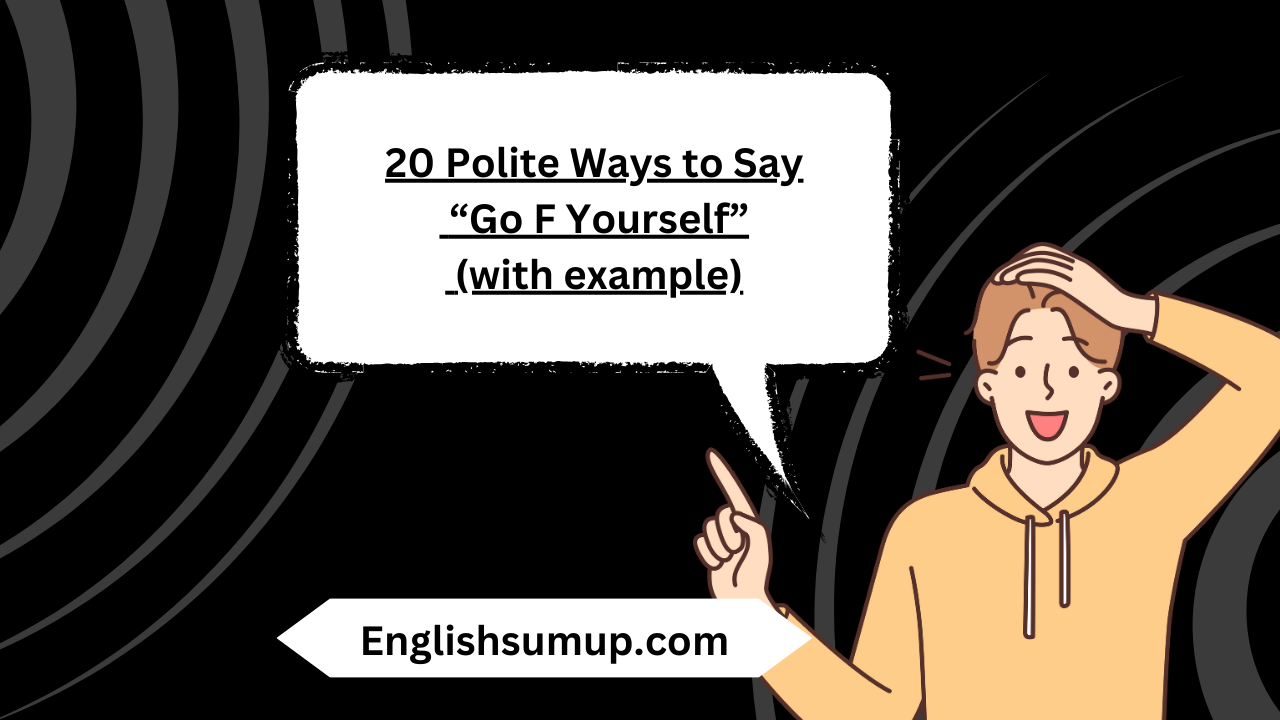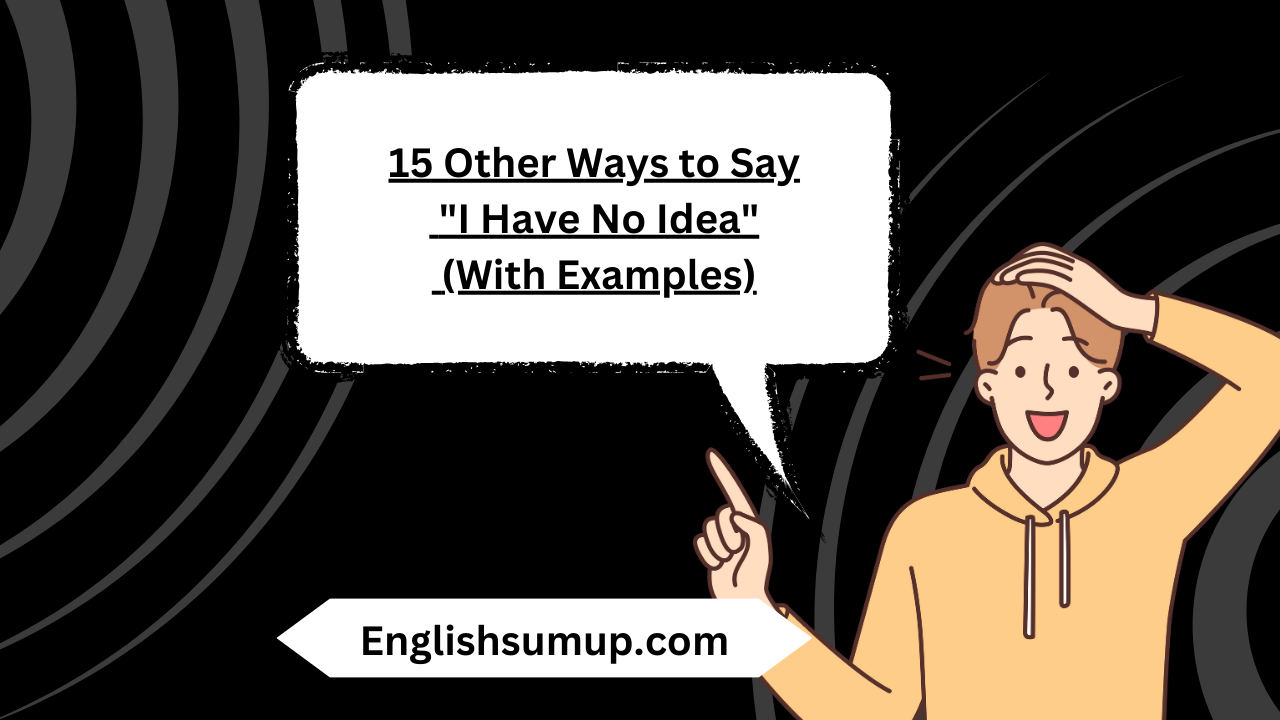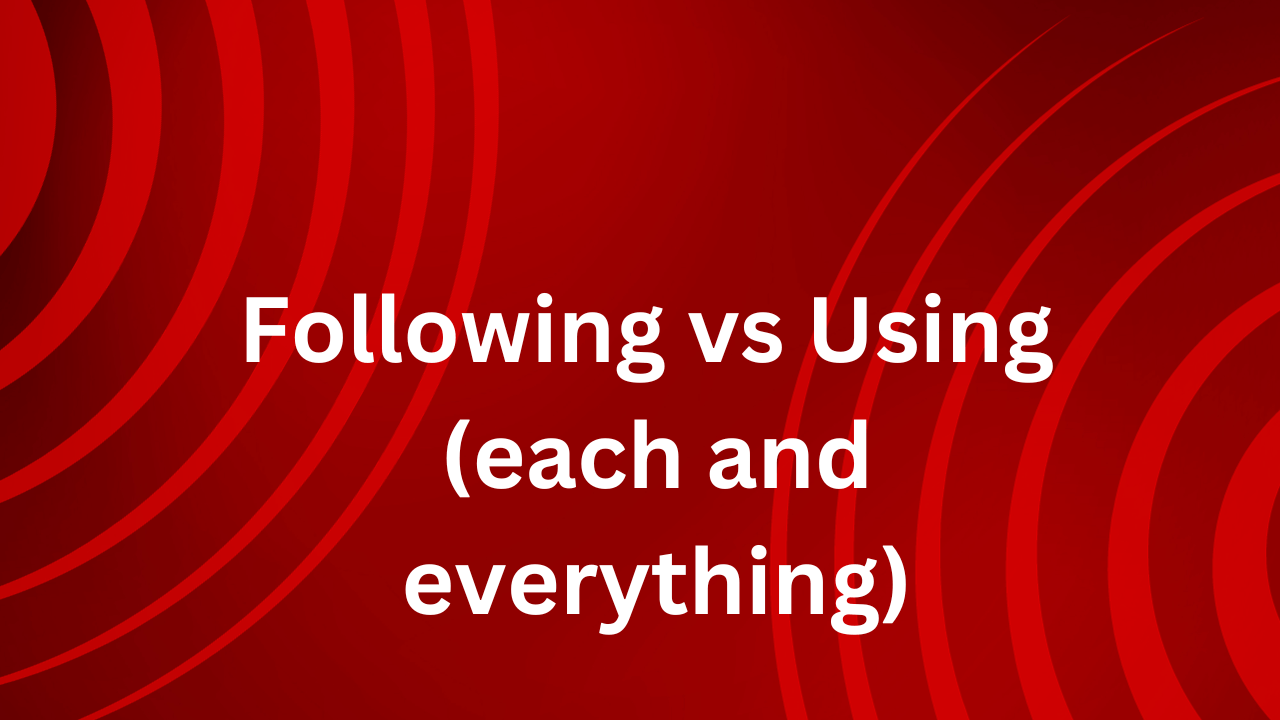In life, we often encounter situations where we feel the urge to tell someone off. However, using explicit language can damage relationships and tarnish reputations. The key is to convey your message without resorting to vulgarity. This article will explore 20 polite ways to say “Go F Yourself,” why and why not to use these alternatives, and provide a list of synonyms with explanations and examples.
Why We Should Use Polite Alternatives

Maintaining Professionalism: In professional settings, using polite language helps maintain respect and professionalism.
Preserving Relationships: Polite responses help in preserving personal and professional relationships.
Reflecting Maturity: Polite language reflects emotional maturity and self-control.
Avoiding Consequences: Explicit language can lead to negative consequences such as reprimands or damaged reputations.
You may love this one: 15 Other Ways to Say “I Have No Idea” (With Examples)
Why We Should Avoid Explicit Language

It’s Offensive: Explicit language can be highly offensive and hurtful.
Damages Reputation: Using such language can damage your personal and professional reputation.
Escalates Conflicts: Explicit language can escalate conflicts rather than resolving them.
Lacks Professionalism: It shows a lack of professionalism and respect.
Here Are 20 Polite ways to say “Go F Yourself”
- “I believe this conversation is over.”
- “Let’s agree to disagree.”
- “I think it’s best if we part ways.”
- “I’ll pass on that, thank you.”
- “Please find someone else for this.”
- “I’m not interested in continuing this discussion.”
- “Let’s move on, shall we?”
- “Your input is not needed here.”
- “I don’t think this is productive.”
- “I respectfully disagree.”
- “That’s not going to work for me.”
- “I think we’re done here.”
- “I’ll leave it at that.”
- “I’d rather not engage in this.”
- “I think it’s time to end this.”
- “You do you, I’ll do me.”
- “I’m not obligated to entertain this.”
- “This isn’t worth my time.”
- “I have more important things to focus on.”
- “Let’s not waste each other’s time.”
“I believe this conversation is over.”
This phrase is a firm and clear way to signal that you no longer wish to engage in the discussion. It sets a boundary without being overtly rude. By stating that the conversation is over, you are taking control of the situation and indicating that further dialogue is unwelcome.
Example: “Given your tone, I believe this conversation is over.” This statement can be used in a professional setting when someone is being disrespectful or unproductive.
“Let’s agree to disagree.”
This phrase acknowledges that both parties have different opinions that are unlikely to change. It shows respect for the other person’s perspective while also standing firm in your own beliefs. It’s a way to end an argument without conceding or escalating.
Example: “We have different views on this matter, so let’s agree to disagree.” Use this when a discussion becomes circular and unproductive.
“I think it’s best if we part ways.”
This phrase is a polite way to suggest that continuing the relationship or conversation is no longer beneficial. It’s often used in professional contexts but can apply to personal relationships as well. It indicates a desire to move forward independently.
Example: “Considering our differences, I think it’s best if we part ways.” This can be used when ending a business partnership or a friendship that’s become toxic.
“I’ll pass on that, thank you.”
This phrase politely declines an offer or suggestion without providing a detailed explanation. It’s courteous and to the point, making it clear that you are not interested without being dismissive or rude.
Example: “I appreciate your idea, but I’ll pass on that, thank you.” Use this when declining invitations or suggestions that don’t align with your interests or values.
“Please find someone else for this.”
This phrase indicates that you are not the right person for a task or discussion and suggests that the other person should seek help elsewhere. It’s a polite way to delegate or remove yourself from a situation.
Example: “I’m unable to assist with this, please find someone else for this.” This can be used in a work setting when you are overburdened or lack the expertise required.
“I’m not interested in continuing this discussion.”
This phrase directly states your disinterest in furthering the conversation. It’s a straightforward and polite way to end a discussion that you find unproductive or unpleasant.
Example: “I’ve made my point clear, I’m not interested in continuing this discussion.” Use this when a conversation is going nowhere and you want to exit gracefully.
“Let’s move on, shall we?”
This phrase suggests changing the topic or ending the discussion in a polite manner. It’s often used to redirect the conversation to more productive or relevant matters.
Example: “We’re not getting anywhere, let’s move on, shall we?” Use this to diplomatically steer away from contentious topics.
“Your input is not needed here.”
This phrase politely dismisses someone’s opinion or interference. It’s a way to indicate that their contribution is not required or helpful in the current context.
Example: “Thank you, but your input is not needed here.” This can be used in meetings when someone is offering unhelpful or off-topic comments.
“I don’t think this is productive.”
This phrase suggests that the conversation or activity is not leading to any beneficial outcome. It’s a polite way to express that continuing is a waste of time.
Example: “This argument isn’t leading anywhere, I don’t think this is productive.” Use this to end futile debates or discussions.
“I respectfully disagree.”
This phrase shows disagreement without hostility. It’s a way to express a different opinion while maintaining respect and civility.
Example: “While I see your point, I respectfully disagree.” Use this in debates or discussions where you want to maintain a positive tone.
“That’s not going to work for me.”
This phrase politely declines a proposal or suggestion. It indicates that the offered idea is not suitable for you without being dismissive.
Example: “I understand your idea, but that’s not going to work for me.” Use this when you need to decline offers or plans that don’t align with your needs.
“I think we’re done here.”
This phrase indicates the end of a conversation or meeting. It’s a clear and polite way to signal that there is nothing more to discuss.
Example: “We’ve covered everything, I think we’re done here.” Use this to conclude meetings or discussions that have run their course.
“I’ll leave it at that.”
This phrase concludes your point firmly and indicates that you do not wish to continue the discussion. It’s a polite way to end your contribution.
Example: “I’ve said all I needed to, I’ll leave it at that.” Use this when you’ve made your point and don’t want to engage further.
“I’d rather not engage in this.”
This phrase states a preference to avoid the topic. It’s a polite way to disengage from conversations you find unproductive or uncomfortable.
Example: “This isn’t a productive discussion, I’d rather not engage in this.” Use this to gracefully exit discussions you find unappealing.
“I think it’s time to end this.”
This phrase indicates the need to conclude the interaction. It’s a polite way to suggest that the conversation or meeting should come to an end.
Example: “We’re going in circles, I think it’s time to end this.” Use this when discussions are repetitive and unproductive.
“You do you, I’ll do me.”
This phrase suggests focusing on individual paths and respecting differences. It’s a polite way to acknowledge differing opinions and move forward separately.
Example: “We clearly have different views, you do you, I’ll do me.” Use this when you want to respect differences without further debate.
“I’m not obligated to entertain this.”
This phrase indicates you won’t participate further. It’s a polite way to set a boundary and exit the conversation.
Example: “This isn’t constructive, I’m not obligated to entertain this.” Use this to disengage from unproductive or negative interactions.
“This isn’t worth my time.”
This phrase states the interaction is not valuable to you. It’s a polite way to indicate that you prefer to focus on more important matters.
Example: “We’re not achieving anything here, this isn’t worth my time.” Use this to exit time-wasting conversations or tasks.
“I have more important things to focus on.”
This phrase indicates you have higher priorities. It’s a polite way to suggest that you need to attend to more pressing matters.
Example: “I can’t engage in this right now, I have more important things to focus on.” Use this when you need to prioritize your time and efforts.
“Let’s not waste each other’s time.”
This phrase suggests ending the interaction for mutual benefit. It’s a polite way to acknowledge that continuing is unproductive.
Example: “This isn’t productive for either of us, let’s not waste each other’s time.” Use this to mutually agree to end unproductive discussions.
Conclusion
Using polite alternatives to explicit language not only helps maintain a positive image but also aids in preserving relationships and avoiding unnecessary conflicts. By choosing our words carefully, we can express our displeasure or disinterest in a respectful and mature manner.










